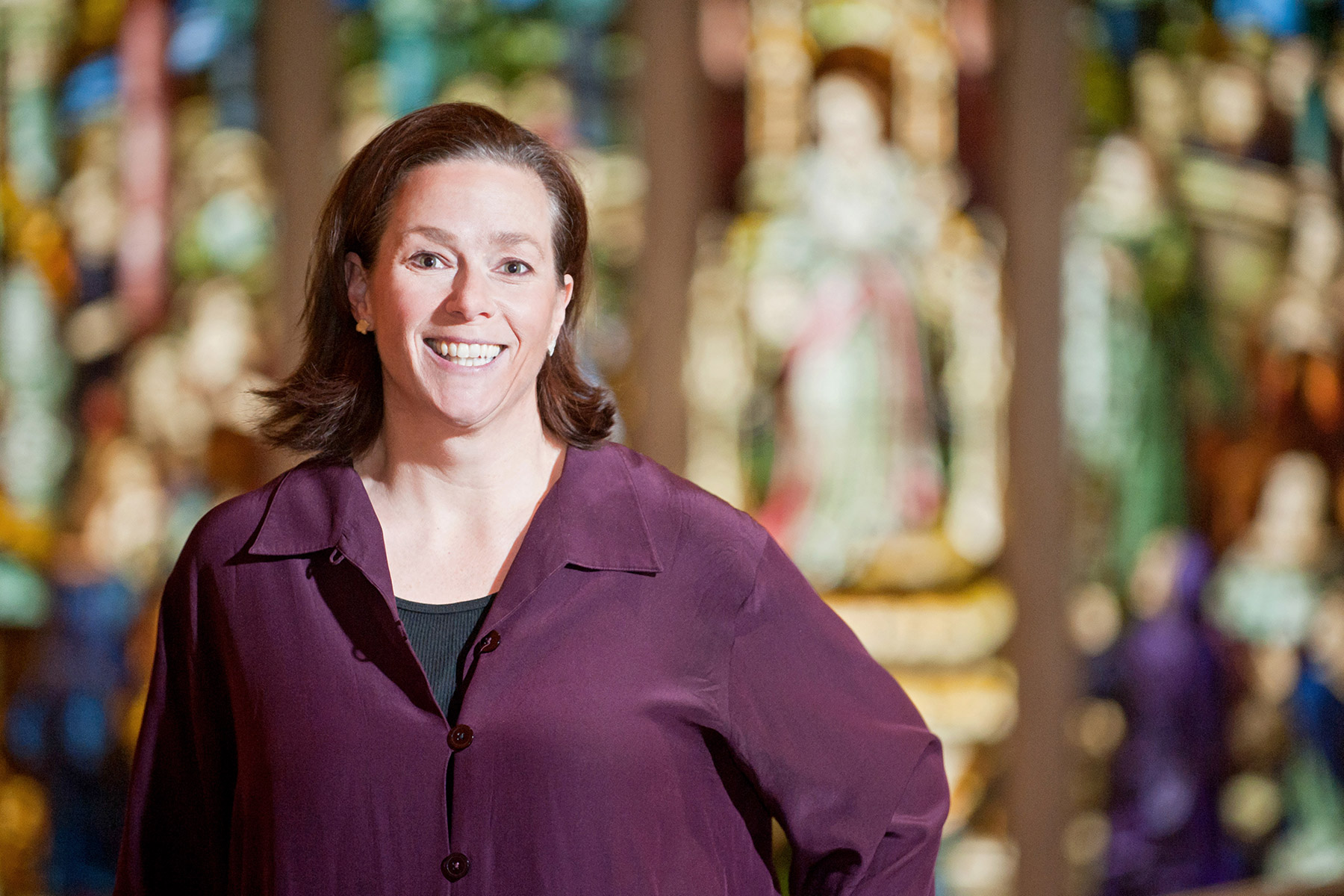Outside the ClassroomIs There Some Danger In Protecting Our Kids?Vassar Professor Says They Should Be Making More Decisions
Outside the ClassroomIs There Some Danger In Protecting Our Kids?Vassar Professor Says They Should Be Making More Decisions
It’s natural for parents to want to protect their children from harm, but is there some danger in protecting them too much? Professor of Psychological Science Abigail Baird ’91 says her research on the workings of the adolescent brain suggests that the answer is yes. She spent part of the summer working on a grant application to continue her work in this field of study.

“I’m looking at the importance of actual experience in adolescent development,” said Baird, who has been teaching at Vassar since 2006 and has done extensive research in adolescent behavior. “It’s your personal experience that helps you learn how to make good decisions in the future.”
Baird says teens actually use a different part of their brain than adults do to make many decisions. In one study, both groups were given a series of questions, some of them benign and others more extreme, such as: Is it a good idea to jump off a roof or swim with sharks? Baird said both the groups gave the “right answers” to these “bad idea” questions, but teens took longer to respond and they used a part of the brain that focuses on reasoning to make the decision.
“Adults answered the questions more quickly and they used a part of the brain associated with emotional response because their prior experience made it unnecessary to think much about the question before answering,” Baird said. “For the adults, you could say these questions were a ‘no-brainer.’”
Baird says this study suggests that it’s important for adolescents to be exposed to more first-person experiences and to make their own decisions about them. But she said parents may be reluctant to allow their children to do so because of the Internet and social media makes it seem as if the world is more dangerous than it is. “We know that violent crime among teens has been steadily decreasing during the last decade, but because of the Information Age, a crime that is reported in Sacramento causes an emotional response in parents on the other side of the country,” she said.
Baird said she applies the insights she’s gained in her research both in the classroom and in her role as Noyes House Fellow. “I try to create a more experiential learning experience in the classroom,” she said. “Sometimes it’s as simple as insisting that students forgo exclusively digital resources and walk over to the library to find material from books or scientific journals in physical form” she said. “‘Go to the source’ is still Vassar’s mantra, but it is also important to know how to go to all of the sources.
“And since Vassar creates a lot of pre-programmed time, sometimes as a House Fellow, I’ll try to create time for the students that seems like a house meeting where there’s food, but in reality, nothing specific is planned. I want to provide a non-structured experience where they have to simply interact with each other in real time. As simple as this seems, it is harder and harder to come by; and Vassar is the kind of place where these social interactions enable social and academic learning that is critical to long-term happiness and success.”